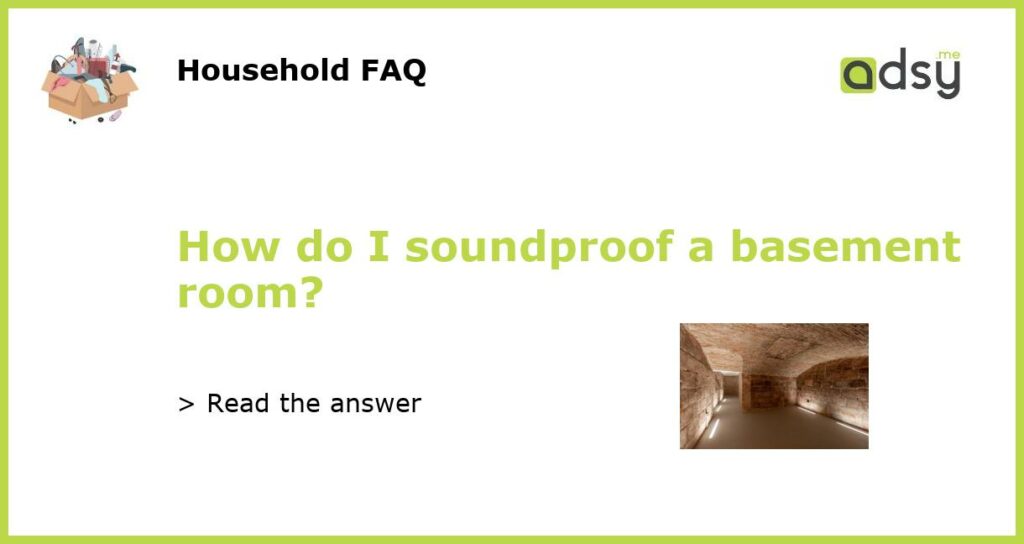Understanding the Importance of Soundproofing a Basement Room
If you’re considering soundproofing your basement room, chances are you have a specific purpose in mind, such as creating a home theater, recording studio, or quiet workspace. Soundproofing is crucial for these types of spaces to minimize noise transfer and ensure a comfortable environment. In a basement, soundproofing becomes even more crucial as underground spaces tend to be prone to echoes, vibrations, and external noise infiltration.
Assessing the Existing Soundproofing Elements
Before diving into the soundproofing process, it’s important to assess the current state of your basement room’s sound insulation. Check for any existing insulation, such as drywall, carpeting, or ceiling tiles, that may contribute to soundproofing. Evaluate the level of noise reduction they provide and identify areas where improvements can be made.
Soundproofing Techniques for the Basement Room
There are several effective soundproofing techniques you can employ to minimize noise transmission and create a more peaceful basement room. Here are some key techniques to consider:
Soundproofing Walls: Use acoustic insulation materials, such as mass-loaded vinyl (MLV) or soundproofing foam, to add an extra layer of sound insulation to your walls. Apply these materials beneath the drywall or over existing walls to reduce sound transmission.
Soundproofing Ceilings: Install soundproofing materials, like acoustic panels or suspended ceiling systems, to absorb and block sound waves from traveling through the ceiling. These materials can help reduce footstep noise, airborne sounds, and echoes.
Soundproofing Floors: Add carpeting or soundproof underlayment beneath existing flooring to absorb and block sound vibrations. Additionally, consider using soundproofing floor mats or rubber pads to isolate the floor from the structure, further reducing noise transmission.
Sealing Air Leaks: Inspect the basement room for any gaps or cracks where sound can leak through. Use acoustic caulk or weatherstripping to seal these openings and prevent noise infiltration.
Soundproof Doors and Windows: Upgrade to solid-core doors or install soundproof door seals to minimize sound leakage. For windows, consider using double-paned glass with a layer of soundproofing film or installing soundproof curtains or blinds for additional noise reduction.
Additional Tips and Considerations
While the above techniques are effective in soundproofing a basement room, here are a few additional tips and considerations to enhance the soundproofing process:
Use Acoustic Insulation Boards: Install acoustic insulation boards on the walls, ceilings, and floors for added soundproofing. These boards are specifically designed to absorb and dampen sound waves, resulting in reduced noise transmission.
Consider Soundproofing Materials Placement: Pay attention to where noise is originating from and target those areas with soundproofing materials. For example, if you have a home theater in the basement, focus on soundproofing the walls and ceiling to prevent sound from escaping.
Address Low-Frequency Noise: Low-frequency sounds can be more challenging to block than higher frequency sounds. Consider adding bass traps or specialized soundproofing materials designed to absorb low-frequency noise.
Work with Professionals for Optimal Results
If you’re unsure where to start or prefer a professional touch, consider consulting with soundproofing experts or contractors. They can assess your basement room’s specific needs and suggest the most appropriate soundproofing solutions for optimal results. While DIY soundproofing projects can be effective, working with professionals ensures a higher level of expertise and guarantees a more comprehensive soundproofing solution.






